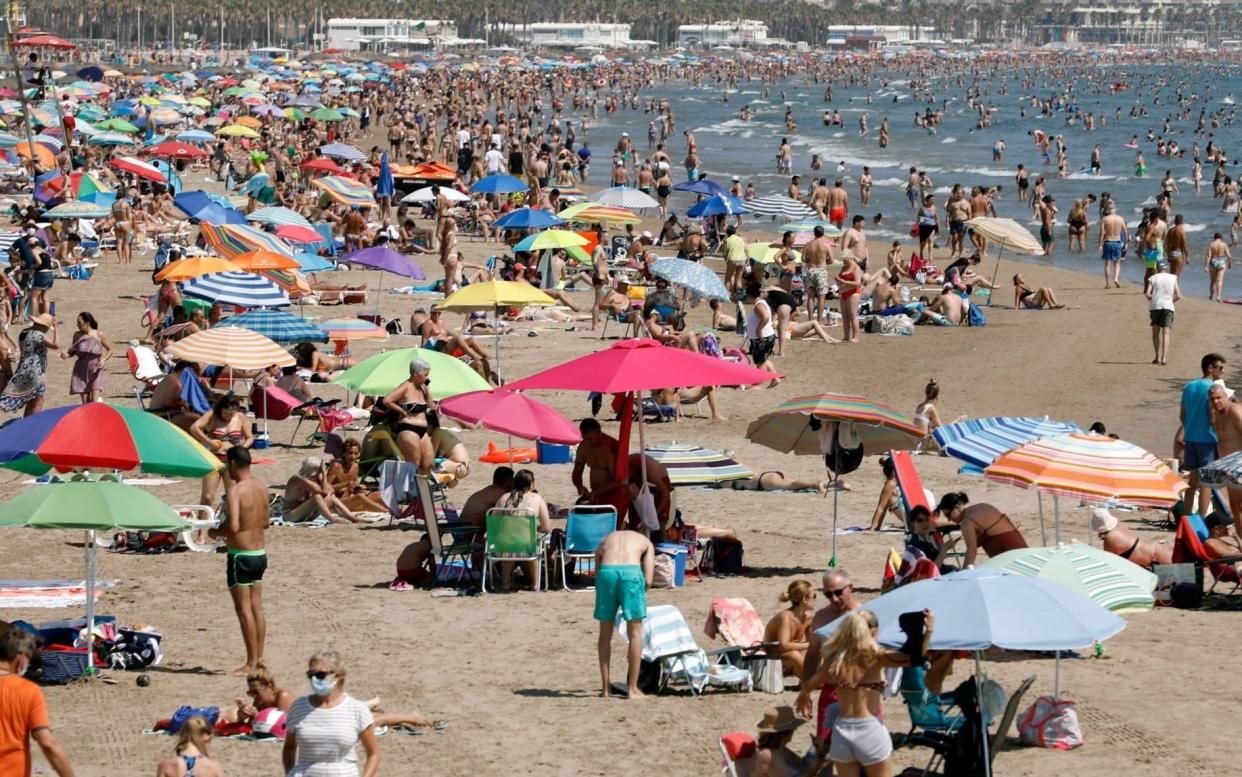EU summer holidays uncertain as member states clash over coronavirus passports

British minds are understandably already straying to the possibility of a sun-kissed summer holiday in Europe. Unfortunately, European Union leaders won’t be in a position to guarantee British holidaymakers will be able to travel to the bloc in the near future.
The 27 prime ministers and presidents are holding a video summit on coronavirus this evening, Thursday.
With the bloc still lagging far behind Britain, the US, Israel and even Serbia and Turkey, there is no prospect of them lifting the ban on non-essential travel into the region.
Instead, leaders will reiterate the need for restrictions to stay in place and for vaccinations to rapidly increase.
There is a desire on behalf of the EU institutions to do whatever is possible to save the coming tourist season, which is vital for the economies of southern member states such as Greece and Spain.
That desire extends to allowing travel from non-EU countries such as Britain, but member states are at odds, to the extent that tonight’s summit will dodge tackling the issue of coronavirus passports head on.
Britain is still not on the EU’s list of non-EU countries that are exempt from the non-essential travel restrictions, which is updated every fortnight. The chances of it being taken off in the near future are slim.
Greek and Spanish ministers have been vocal in their demands for accelerated work towards the passports, which would smooth the influx of tourists.
But tourism-dependent countries face opposition from, among others, France and Germany, which are the two most influential EU member states.
Berlin and Paris don’t believe now, with so few EU citizens vaccinated, is the time to talk about coronavirus passports.
There are anxieties about the threat of new variants and concerns over the lack of data on whether vaccinated people can transmit Covid-19 or not. One senior EU official said the leaders wanted to do all they could to avoid a new “death season”.
France, which has a significant anti-vax movement, is concerned about the risk of discrimination between vaccinated and unvaccinated tourists

Other member states prefer to try and strike an international agreement on passports to open up any scheme to non-EU countries.
Athens, Zagreb and Madrid appear to have accepted that their chances of forcing through a deal now are non-existent.
Instead, they will settle for an undertaking that technical work around the passports will continue in preparation for a possible future political agreement and that work will continue on a common design for vaccination certificates.
Those certificates could eventually form the building blocks for a system to facilitate travel.
But to borrow a phrase from the Brexit talks, the clock is ticking and we British tend to book our holidays early.
As pressure grows, so will fears that individual member states will strike their own travel deals with non-EU countries.
Greece, which has held initial talks with Britain, has form in this regard; striking a deal with Israel last summer.
Countries will be under significant pressure not to unlock too soon and to only unlock when the rest of the EU does.
But border policy remains an overwhelmingly national – rather than European – power, so such a move would be politically damaging but would be unlikely to carry legal risk.
Whether or not the EU is on course to hit its target of vaccinating 70 per cent of its population by the end of summer will be pivotal.
But at the moment, EU officials and diplomats admit it is simply too early to say whether the passport plans will be ready in time.
This article first appeared in the Beyond Brexit Bulletin. Sign up for here for expert insight and analysis, exclusive to our subscribers.

 Yahoo News
Yahoo News 
